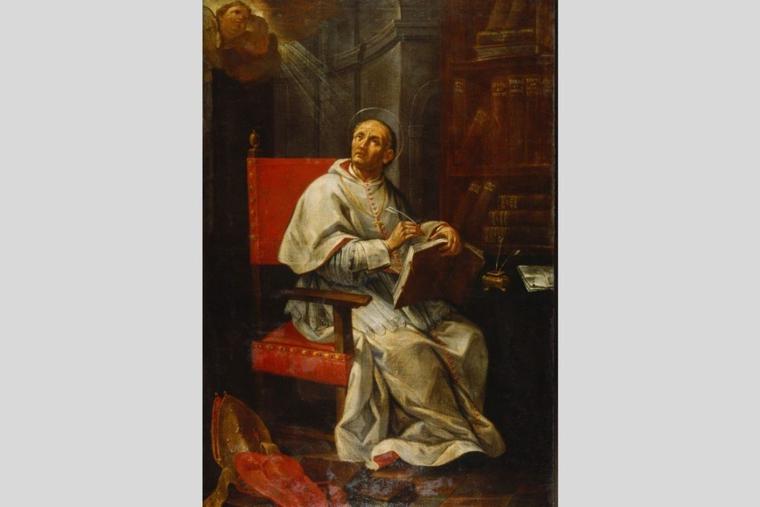
Catholic Saints
Saint Peter Damian, born in 1007 in Ravenna, Italy, rose from a neglected childhood to become an 11th-century Benedictine monk, cardinal, and Doctor of the Church. Orphaned young and raised in poverty, he excelled in education before embracing an ascetic life at the Fonte Avellana hermitage in 1035. Known for his fiery writings—most notably Liber Gomorrhianus, a critique of clerical immorality—he fought corruption within the Church and influenced reforms under multiple popes. Appointed Cardinal-Bishop of Ostia in 1057, he died on February 22, 1072, in Faenza, Italy. His feast day, February 21, celebrates his legacy as a fierce advocate for holiness and Church renewal.
His feast day is celebrated on February 21.
Doctor of the Church
Born in 1007 in Italy, Peter became a key reformer and monk in the medieval Church.
Peter Damian was born in 1007 in Ravenna, Italy, into a large, impoverished family. Orphaned as an infant, he endured neglect until his brother Damian took him in, naming him after himself. Peter excelled in secular studies in Ravenna, Faenza, and Parma, becoming a teacher by his 20s. Yet, seeking deeper meaning, he joined the Benedictine hermitage of Fonte Avellana in 1035, embracing a life of prayer and penance.
His intellectual gifts and ascetic zeal led him to become prior of Fonte Avellana by 1043, where he expanded the community and enforced strict discipline, shaping his later reformist zeal.
Peter Damian emerged as a fierce advocate for Church reform, writing Liber Gomorrhianus in 1049 to denounce clerical immorality, particularly simony and sexual misconduct. His bold critiques gained the attention of popes, including Leo IX, and he served as a papal legate, tackling corruption across Italy. In 1057, Pope Stephen IX made him Cardinal-Bishop of Ostia despite his reluctance.
His prolific writings—letters, sermons, and treatises—addressed theological disputes and promoted asceticism, earning him the title "Doctor of Reform." He influenced the Gregorian Reforms, advocating for clerical celibacy and purity.
Peter died on February 22, 1072, in Faenza, Italy, after a life of service and reform. Though never formally canonized, he was declared a saint by acclamation and named a Doctor of the Church in 1828 by Pope Leo XII. His relics rest in Faenza’s cathedral.
As patron of reformers and hermits, Peter Damian’s writings and reforms left a lasting mark on the Church, inspiring efforts to purify and renew Christian life in the medieval era and beyond.
Born in Ravenna.
Born into poverty in Ravenna, Italy.
Studied in Ravenna, Faenza, and Parma.
Became a secular teacher.
Joined Fonte Avellana.
Entered the Benedictine hermitage.
Led Fonte Avellana community.
Became prior of the hermitage.
Wrote Liber Gomorrhianus.
Critiqued clerical immorality.
Appointed by Pope Stephen IX.
Named Cardinal-Bishop of Ostia.
Died in Faenza.
Passed away on February 22.
Named by Pope Leo XII in 1828.
Recognized as Doctor of the Church.

"Let us seek solitude, that we may find God in the silence of our hearts."
Saint Peter Damian Quotes
"He who does not attack vice encourages it."
"Let us seek solitude, that we may find God in the silence of our hearts, for in stillness the soul hears the whisper of divine truth."
"The Church is a garden to be cultivated, not a wilderness to be left untended."
"Prayer is the ladder by which we ascend to God."
"Let us mortify the flesh that the spirit may live."
"The wounds of Christ are the remedy for the wounds of sin."